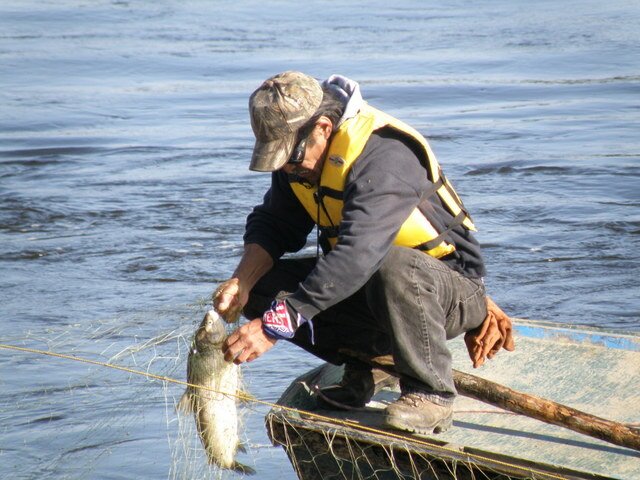We all know that food is fundamentally important for sustaining human life. Beyond survivorship, humans all around the world have developed a spiritual, social, and economic relationship with foods. They are an integral part of our identity, shaping our physical, emotional, and cultural dimensions. They supply the essential nutrients and medicines allowing for communities and societies to grow. They also provide a time where families and friends gather to share stories, laugh, dance, and cry. Their availability and accessibility have in the past been heavily dependent on environmental factors, where agricultural, collecting, hunting, and ceremonial practices have reflected this relationship.

Credit: Katelyn Friendship
For northern First Nations and Inuit, country foods continue to be socially, economically, and spiritually important for their health and well-being (Nuttall et al. 2005). Cultural practices, such as hunting, gathering, food preparation, and language have been heavily shaped by food availability and accessibility. Today, northern peoples have access to store foods as well as country foods such as seal, caribou, arctic char, berries, and beluga. The increased access to high-carbohydrate store-bought foods has been shown to have negative health effects (Kuhnlein and Receveur 2007), however, country foods have been documented as often being nutritionally superior and preferred to store foods. (Wein et al 1996; Nuttall et al. 2005; Kuhnlein and Receveur 2007; Poppel et al. 2007; Ford et al. 2009; Mead et al. 2010).
Ensuring that northern First Nations and Inuit have access to country foods in a changing climate is of outmost importance for a healthy physical, mental, and spiritual lifestyle. Securing access to culturally relevant and preferred, safe and nutritious foods is considered a global issue and is being taken seriously by governments, non-government organizations and communities around the world.
“Food security exists when all people, at all times, have physical and economic access to sufficient safe and nutritious food to meet their dietary needs and food preferences for a healthy and active life”
– FAO (1996) Declaration on world food security. World Food Summit, FAO, Rome.
The importance of food security for northern First Nations and Inuit has been reflected in community-led proposal submissions to Health Canada’s Climate Change and Health Adaptation Program. Since 2008, 11 out of 36 community funded projects from across the Canadian Arctic focused on food security related issues.
You will find below 11 success stories on the research and action led by communities and partners. They tell the stories of the impacts of climate change on people, the relationships built between scientist and community, and provide a sense of the realities of food (in)security in the Canadian Arctic.
References: Food and Agricultural Organization of the United Nations (FAO). 1996. Declaration on world food security. World Food Summit, FAO, Rome. Website: http://www.fao.org/docrep/003/w3613e/w3613e00.htm. Ford, J. D., Gough, B., Laidler, G., MacDonald, J., Qrunnut, K., and Irngaut, C. (2009). Sea Ice, Climate Change, and Community Vulnerability in Northern Foxe Basin, Canada. Climate Research 37: 138–154. Kuhnlein, H., and Receveur, O. (2007). Local Cultural Animal Food Contributes High Level of Nutrients for Arctic Canadian Indigenous Adults and Children. Journal of Nutrition 137: 1110–1114. Mead, E., Gittelsohn, J., Roache, C., and Sharma, S. (2010). Healthy Food Intentions and Higher Socioeconomic Status are Associated with Healthier Food Choices in an Inuit Population. Journal of Human Nutrition and Dietetics 23(supplement s1): 83–91. Nuttall, M., Berkes, F., Forbes, B., Kofinas,G., Vlassova, T., andWenzel, G. (2005). Hunting, Herding, Fishing and Gathering: Indigenous Peoples and Renewable Resource Use in the Arctic. In Hassol, S. (ed.), Arctic Climate Impact Assessment. Cambridge University Press, Cambridge, pp. 650–690. Poppel, B., Kruse, J., Duhaime, G., and Abryutina, L. (2007). SLiCA Results. Institute of Social and Economic Research, University of Alaska Anchorage, Anchorage. Wein, E., Freeman, M., and Makus, J. (1996). Use of and Preference for Traditional Foods among the Belcher Island Inuit. Arctic 49 (3): 256–264.
